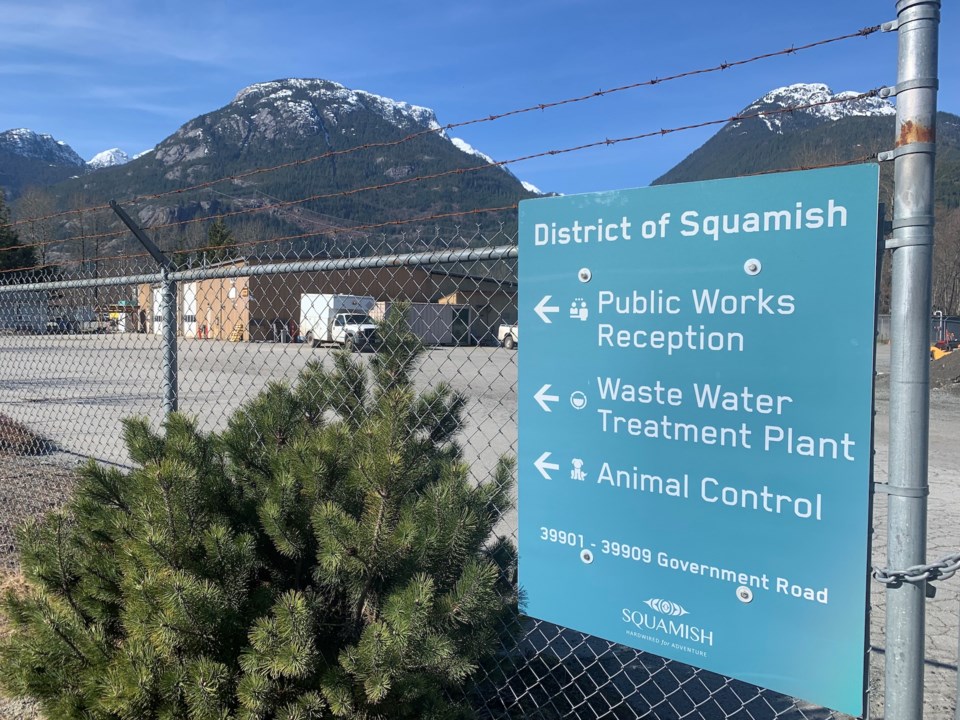Recently, over 1,700 people expressed displeasure at council’s attempt to borrow $16 million for a new public works building. Council is now trying again.
There are problems with the District’s planning — in the process and the substance. These problems impact the type of facilities, their location, their usefulness, and the cost to taxpayers and the environment. Such challenges result from opaque and vision-limited planning.
1. Council started with the wrong premise: that they should build stand-alone facilities. Most progressive municipalities accept that constructing single-use public buildings is a wasteful use of taxpayers’ dollars.
2. These projects are being led by the real estate department, which council apparently expects it to have the vision and skills of urban planners and architects.
It should be clear that these projects are key opportunities to creatively design our community for the next half-century.
Treating them as isolated projects misses an opportunity that may never come again.
The District acknowledges that their first attempt failed to explain the rationale for the building’s location, and did not provide adequate information regarding design, integration with other users, costs, or the rationale for the unallocated space and two kitchens. More concerning though is why has not council addressed the rumour that they have already signed a design-and-build contract.
So what does council do? it hires an external communications firm to try and sell this flawed idea that single-use public buildings are the only method to provide new public facilities.
A closely-related issue is the lack of any genuine effort to collaborate with other agencies. The school district, for instance, needs new offices, bus and building maintenance facilities, and bus parking. It also has a broader vision about maximizing the effectiveness of new capital projects.
1, the school board wrote to the DOS to “…ask that we engage in a collaborative, multi-agency, community-wide visioning and planning process in order that all options are considered for providing needed public facilities, while maximizing advantages [to taxpayers], both fiscal and otherwise.”
Having received no reply, SD48 wrote again on , suggesting that “…a community hub has the potential to involve a number of different uses that will be of benefit to us and to the public.”
These letters are an invitation for collaborative planning of multi-use and multi-agency facilities with the potential to be less expensive and more useful to the people of Squamish. The school district sits on approximately 8,500 square metres of downtown property, so has the potential to be a significant partner.
There has been no written response from DOS. Nevertheless, council is continuing to move forward with leasing a single-use city hall, building a $40-million transit hub, and a $25-million public works administration — all without attempting to collaborate with SD48 for the provision of better services, and reduced capital, operating and environmental costs.
Collaboration has its challenges, but it provides important economies and enhanced utility. We don’t have to look far for good examples: Eagle Eye Theatre and Under One Roof would not have been built without partnerships. These facilities are significantly better than any agency could achieve going solo.
Some people don’t like to share the sandbox.
But we must hold our elected officials to a high standard, and insist they have the vision and courage to help the community reimagine, collaboratively, the planning, funding, and operations of our capital projects.
This will take time; but haste, in this case, will certainly make waste.
It matters not whether the taxes we pay are identified as school or municipal, there is only one taxpayer.
Grant McRadu
Squamish
Editor’s note: The District sent the following response to three questions asked by The С����Ƶ. The District did not see the full letter prior to publishing.
The project team is working with a third-party team of consultants led by to design a right-sized facility for the future, while also recognizing the budgetary constraints we are in. A contract to build is in place and is pending approval of financing. If we do not get financing approval we may lose this contractor and may need to start over and re-negotiate. (Work currently underway on site is in relation to the Waste Water Treatment Plant upgrade project.)
The District is in discussions with the school district about how to work together within a downtown facility (e.g. with municipal offices or library building). Co-locating the school district offices at the Public Works facility/Waste Water Treatment plant has not been discussed, as there is not enough available space for such a mixed-use facility.
The Public Works information campaign has been designed and executed entirely by District in-house resources, with the exception of an infographic, which a local graphic design duo developed the District.
**Please note, this piece has been updated since it was first published to clarify that The С����Ƶ did not send the District the letter prior to publication, but asked three questions related to the letter's main points. (We never share letters or anything else with others prior to publication.)




